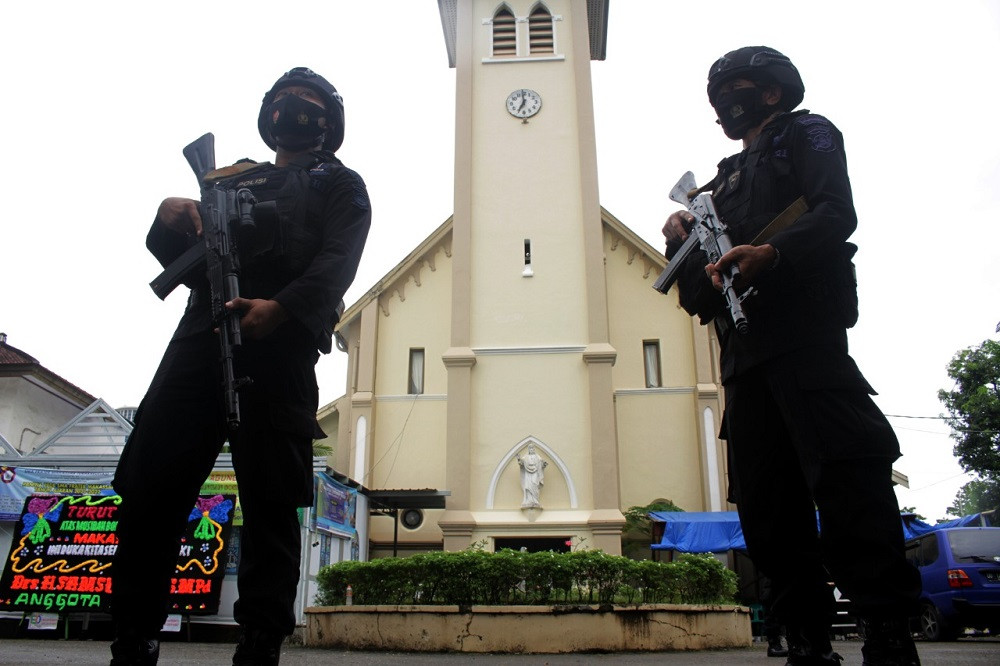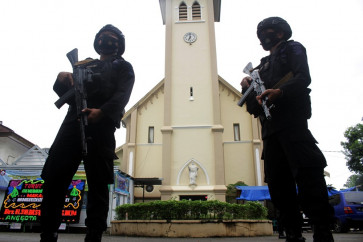Popular Reads
Top Results
Can't find what you're looking for?
View all search resultsPopular Reads
Top Results
Can't find what you're looking for?
View all search resultsHow the Taliban’s victory alters the terror threat in Indonesia
The Taliban's takeover of Afghanistan last month has shifted the threat posed by terrorism groups in Indonesia, with JI likely to be in it for the long haul while JAD falls by the wayside.
Change text size
Gift Premium Articles
to Anyone
 Officers of the South Sulawesi Police's Mobile Brigade stand guard on March 31, 2021 outside the Sacred Heart Cathedral in the provincial capital of Makassar. Local security was beefed up ahead of this year's Easter celebrations following a suicide bombing at the cathedral on Palm Sunday. (Antara/Arnas Padda)
Officers of the South Sulawesi Police's Mobile Brigade stand guard on March 31, 2021 outside the Sacred Heart Cathedral in the provincial capital of Makassar. Local security was beefed up ahead of this year's Easter celebrations following a suicide bombing at the cathedral on Palm Sunday. (Antara/Arnas Padda)
F
or a brief period over the last few weeks, two stories managed to draw the public’s attention away from the COVID-19 pandemic: the arrest of 58 suspected members of regional terrorist network Jamaah Islamiyah (JI) and the Taliban's takeover of Afghanistan.
Though the two events occurred in two different countries separated by oceans and continents, they provide some insight into the future of two of Indonesia's most prominent terrorist networks: JI and Jamaah Ansharud Daulah (JAD), a local affiliate of Islamic State (IS).
Many terrorism experts say that JI represents more of a long-term threat, while JAD presents a more immediate threat.
I, for one, was part of the JI indoctrination program in 1995-2008 and now closely monitor the development of JI and JAD in order to support deradicalization and counter-radicalization programs, and will try to explain why the threat posed by these two groups is different.
The recent arrest of JI members in several provinces by the National Police’s Densus 88 counterterrorism squad revealed that the group had been using clever methods to source funding, including the use of charity boxes that looked unassuming. It was also suggested that the group had been concealing its activities and even infiltrating national politics.
This, of course, has led to much speculation as to how JI could operate undetected by both the public and security forces. The discovery of charity boxes linked to the group in various parts of the country attest to the breadth of JI's reach across the archipelago.
JI's ideology and narratives are based on a keenly felt awareness that the group has still been unable to implement Islamic law in the local environment. It is still paving the way for that final goal. This is why JI appears to be taking a nonconfrontational approach and tends to blend in and mingle with broader society.

















